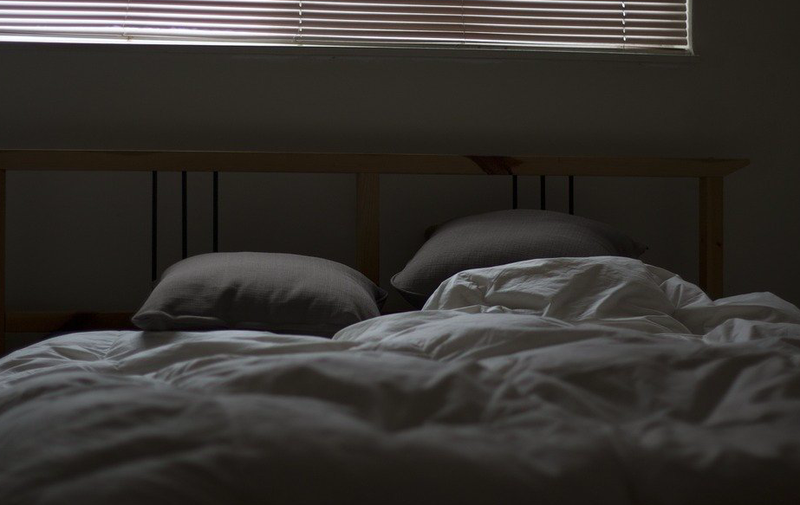Coronasomnia: What it is and how to treat it
Updated | By Breakfast with Martin Bester
COVID-19 has given South Africans plenty of reasons to lose sleep. Because of the pandemic, the lockdown, and the stresses, more people are battling to sleep.

Coronasomnia is definitely on the rise, with more people reported to be having trouble sleeping due to anxiety, depression, and concerns over COVID-19. Have you experienced this?
Have you suffered sleepless nights because your life changed drastically and you cannot see the end?
READ: “My insides feel numb.” – Karlien van Jaarsveld’s daughter back in hospital
Breakfast with Martin Bester spoke to Anton Fourie, clinical technologist involved with diagnostic sleep studies based at the Lifestyle Sleep Centre at Unitas Hospital.
Anton Fourie says, “Get up in the morning, don’t work in your pyjamas. Those things are critically important. Before sleep you need to be meditating a bit for e.g. like a good book.”
Have you experienced this?
Ten simple tips to improve your sleep
1 Avoid Caffeine, Alcohol, Nicotine, and Other Chemicals that Interfere with Sleep
Caffeinated products decrease a person’s quality of sleep. As any coffee lover knows, caffeine is a stimulant that can keep you awake. So avoid caffeine (found in coffee, tea, chocolate, cola, and some pain relievers) for four to six hours before bedtime. Similarly, smokers should refrain from using tobacco products too close to bed time.
2 Turn Your Bedroom into a Sleep-Inducing Environment
A quiet, dark, and cool environment can help promote sound slumber. Why do you think bats congregate in caves for their daytime sleep? To achieve such an environment, lower the volume of outside noise with earplugs or a "white noise" appliance. Use heavy curtains, blackout shades, or an eye mask to block light, a powerful cue that tells the brain that it's time to wake up.
Keep the temperature comfortably cool—between 15 and 21°C—and the room well ventilated. And make sure your bedroom is equipped with a comfortable mattress and pillows. (Remember that most mattresses wear out after ten years.) Switch off all electronic gadgets i.e. cell phones, PCs at least an hour before you go to bed. Blue light from these devices stimulates brain activity.
Also, if a pet regularly wakes you during the night, you may want to consider keeping it out of your bedroom.
3 Establish a Soothing Pre-Sleep Routine
Light reading before bed is a good way to prepare yourself for sleep. Ease the transition from wake time to sleep time with a period of relaxing activities an hour or so before bed. Take a bath (the rise, then fall in body temperature promotes drowsiness),read a book, watch television, or practice relaxation exercises. Avoid stressful, stimulating activities—doing work, discussing emotional issues.
4 Go to Sleep When You’re Truly Tired
Struggling to fall sleep just leads to frustration. If you’re not asleep after 20 minutes, get out of bed, go to another room, and do something relaxing, like reading or listening to music until you are tired enough to sleep.
5 Don’t Be a Night-time Clock-Watcher
Staring at a clock in your bedroom, either when you are trying to fall asleep or when you wake in the middle of the night, can actually increase stress, making it harder to fall asleep. Turn your clock’s face away from you.
And if you wake up in the middle of the night and can’t get back to sleep in about 20 minutes, get up and engage in a quiet, restful activity such as reading or listening to music. Keep the lights dim; bright light can stimulate your internal clock. When your eyelids are drooping and you are ready to sleep, return to bed.
6 Use Light to Your Advantage
Natural light keeps your internal clock on a healthy sleep-wake cycle. So let in the light first thing in the morning and get out of the office for a sun break during the day.
7 Keep Your Internal Clock Set with a Consistent Sleep Schedule
Having a regular sleep schedule helps to ensure better quality and consistent sleep.
Going to bed and waking up at the same time each day sets the body’s "internal clock" to expect sleep at a certain time night after night. Try to stick as closely as possible to your routine on weekends to avoid a Monday morning sleep hangover.
8 Nap Early—Or Not at All
Many people make naps a regular part of their day. However, for those who find falling asleep or staying asleep through the night problematic, afternoon napping may be one of the culprits. This is because late-day naps decrease sleep drive. If you must nap, it’s better to keep it short and before 5 pm
9 Lighten Up on Evening Meals
Eating a pepperoni pizza at 10 p.m. may be a recipe for insomnia. Finish dinner several hours before bedtime and avoid foods that cause indigestion.
10 Balance Fluid Intake
Drink enough fluid at night to keep from waking up thirsty—but not so much and so close to bedtime that you will be awakened by the need for a trip to the bathroom.
Tune in to the 'Breakfast with Martin Bester', weekdays from 06:00 - 09:00. Stream the show live here or download our mobile app here.
Image credit: Pixabay
Show's Stories
-
Model Marciel Hopkins wys haar eersteling
Die voormalige 'Boer Soek 'n Vrou'-aanbieder en haar aantreklike man, Ha...
The Drive with Rob & Roz 1 day, 7 hours ago -
WATCH: SA reacts to TikToker's new spin on a classic SA dish
If you are bored of eating normal pap, here is a new recipe for you to try.
The Drive with Rob & Roz 1 day, 8 hours ago